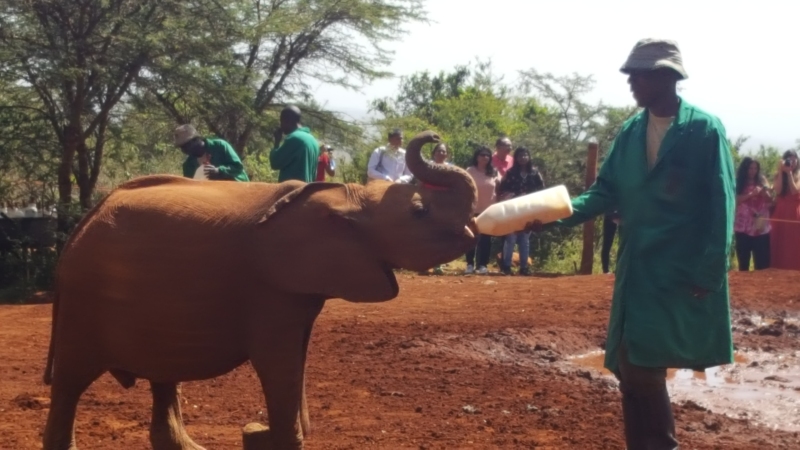Years ago, I attended a training called “How to eat an elephant.” I was a member of JCI at the time and sometimes funny names aligned with useful training.
And naturally, how to eat an elephant is also an eternal question and a metaphor.
The training was there to provide guidance on what project management could mean to us. And just as with the proverbial elephant the task was as simple as “chewing one bite” after the other.
In my practice, I often get the question of how to solve a problem quickly. May it be to get a promotion faster than others, to transform the way a team acts, or to solve a riddle they have been working on for the past decades. These are problems that are important to my client. And the reason it feels important to them is that they don’t know how to solve it. They don’t know where or how to start and become attached to what it is that they want. To them it becomes how things should be.
It’s a sign of overwhelm.
The person uses what they want as an objective and searches for a solution of how to get there. However, in that quest, they find themselves lost in options and the desire to know the solution.
The overwhelm might paralyze them. That is when the situation transformed itself into one where they believe that the only way out is to know how to do it. It’s the moment in which they start searching for people telling them how to do it.
The thing is someone who finds himself in this situation can’t see it from the outside. They can’t see it in retrospect either. They might even have forgotten how they solved similar situations in the past. They forgot what it means to be faced with a new situation they haven’t learned to deal with yet.
It’s not visible to them, that in the past they tried, started somewhere, and were persistent until it worked out.
One bite at a time.
It’s what overwhelm and anxiety do.
They make people blind to the possibilities and focus them on the sense of not knowing how to proceed. Overwhelm and anxiety make it harder to think. It’s part of our biology.
Francis von Assisi is supposed to have said “Start by doing what’s necessary; then do what’s possible; and suddenly you are doing the impossible.”
It is true, but it continues to sound like asking to eat an elephant. At least, when one assumes that it is relevant to determine what “necessary” is. The astonishingly difficult thing to see is, that “necessary” is whatever one can do that is outside of one’s habit.
Part of the overwhelm is the experience that there are so many unknowns that one assumes all of them need to be answered. Whenever there is one unknown the natural reaction is to seek to answer it. But that’s how one normally would address the situation when there is only one question.
Instead of trying to answer all the existing questions at once, the non-evident thing to do is to let go of the idea that one needs to have the answers. It’s ok to just start somewhere. But, it’s also important to start with something one hasn’t done until now. It doesn’t need to be something important, relevant, or necessary.
The doing helps see what doesn’t work, but also what works. Persistence serves and provides the learning. That learning enables achievement.
Sometimes it isn’t knowing that enables doing. It is doing that enables knowing.
Failing to see that possibility is when dreaming big will remain a dream.


